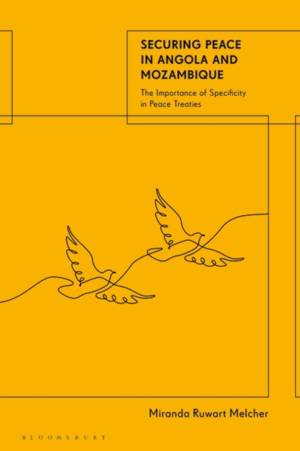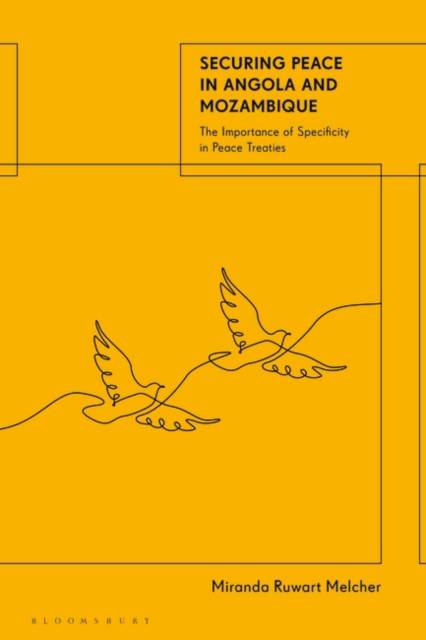
- Afhalen na 1 uur in een winkel met voorraad
- Gratis thuislevering in België vanaf € 30
- Ruim aanbod met 7 miljoen producten
- Afhalen na 1 uur in een winkel met voorraad
- Gratis thuislevering in België vanaf € 30
- Ruim aanbod met 7 miljoen producten
Zoeken
Securing Peace in Angola and Mozambique
The Importance of Specificity in Peace Treaties
Miranda Melcher
Hardcover | Engels
€ 203,95
+ 407 punten
Omschrijving
This book helps explain how and why there are such diverging outcomes of UN peace negotiations and treaties through a detailed examination of peace processes in the Angolan and Mozambican civil wars. Does it really matter what's written on page 36, protocol V, section III, point 5 of a UN-endorsed peace treaty? Dr. Miranda Ruwart Melcher shows that seemingly small details - such as who wears suits, who has toothbrushes, and how specific words are translated between French and English - can and have delayed peace or contributed to restarting wars.
Dr. Melcher uses unique primary source data, including interviews with key actors who have participated in peace treaty negotiations, as well as thousands of previously newly opened UN documents. She argues that treaty specificity is an undervalued - but important - factor in researching the success or failure of peace processes. The book offers new insights and policy recommendations for key details whose presence or absence can have a significant impact on how peace processes unfold.Specificaties
Betrokkenen
- Auteur(s):
- Uitgeverij:
Inhoud
- Aantal bladzijden:
- 258
- Taal:
- Engels
Eigenschappen
- Productcode (EAN):
- 9781350407930
- Verschijningsdatum:
- 18/04/2024
- Uitvoering:
- Hardcover
- Formaat:
- Genaaid
- Afmetingen:
- 156 mm x 234 mm
- Gewicht:
- 539 g

Alleen bij Standaard Boekhandel
+ 407 punten op je klantenkaart van Standaard Boekhandel
Beoordelingen
We publiceren alleen reviews die voldoen aan de voorwaarden voor reviews. Bekijk onze voorwaarden voor reviews.








